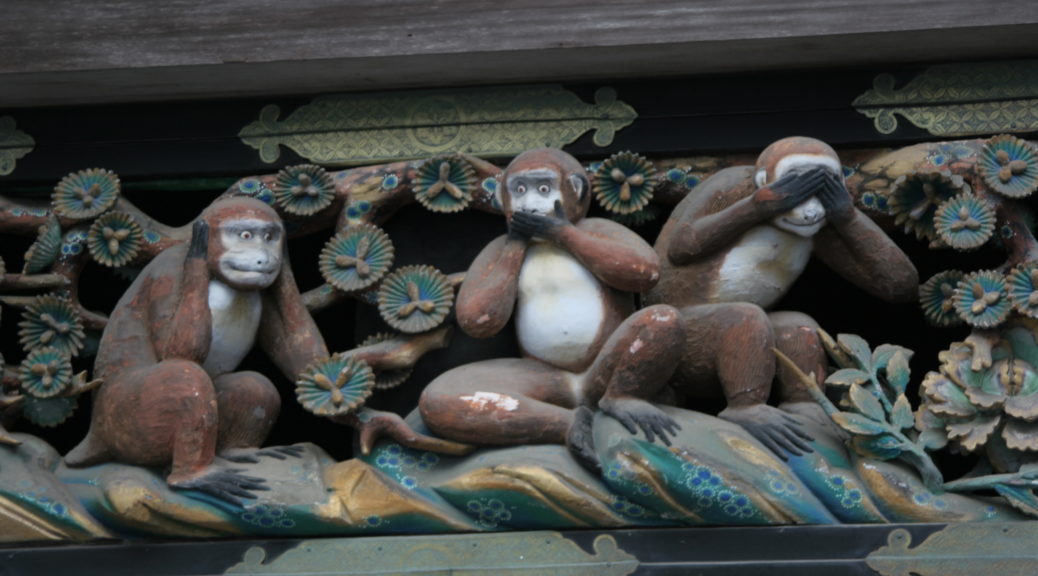
Jonathan Lemon’s Monkey Mind
Roll Out the Barrel (of Monkeys)
I’ve tagged my list of mental malformations under the following label: Monkey Mind.
No, this isn’t some transplant gone wrong or an unfortunate atavism. It’s not an uncontrollable urge to climb trees, write with my feet, or fling things. And it’s not contagious, although you probably suffer from it as well… whether you realize it or not.
What is Monkey Mind?
The term Monkey Mind was coined by the Buddha, that body-positive guy who was good at meditating and founding religions. The term comes from an analogy: the brain has a tendency to jump from thought to thought, much the same way a monkey jumps from branch to branch.
My maladroit Monkey Mind lacks the implied grace found in the Buddha’s example. (After all, swinging through the air is an advanced skill.)
Rather, the scene in my brain probably resembles the aftermath of a monkey driving a forklift after a couple of banana daiquiris: a big mess with occasional moments of hilarity, followed by second-guessing over whether something should have been done to make things turn out differently.
(“Did you really think it was a good idea to let that monkey drive a forklift?”
“He said he was licensed!”)
Myriad thoughts make for multiple forklift opportunities: a person averages 60,000 thoughts a day, 95% of which are repeated each day, and 80% of which are negative.
Monkey Business
Monkey Mind makes it difficult for me to focus sometimes. Not so much from the ADHD “squirrel!” variety, but more from the “paralysis by analysis” variety.
I have an analytical brain where thoughts are susceptible to branching off. Those branches make perfect monkey habitats. Goals, projects, worries, errands, articles, responses to imaginary conversations, etc. I think all day and even when I’m asleep, according to some dreams I remember.
While thinking is many things, it is not action (and I’ve tried really hard to make the two the same).
Spending most of my time in the cerebral jungle can place difficulties between me and the execution of my plans (mice have nothing on monkeys when it comes to best-laid plans.) Adding to my natural deficiency in this area is the tendency for the monkey to want to build ever-more complicated and intricate plans. It’s like he’s playing Mouse Trap, to bring the cross-species metaphor full circle.
For instance, I might formulate a goal to get in better shape. A monkey-less mind might set simple targets for diet and exercise levels. Monkey Mind might make a formula-saturated spreadsheet for calculating macronutrient levels; calorie expenditures for type, duration, and intensity of exercise; and build a list of foods with accompanying calorie and nutrient data. (Alas, spreadsheet construction doesn’t count as exercise.)
The Monkey’s On My (Project’s) Back
Monkey projects spin out of control. I’ve found myself taking a few steps down a project path before realizing that much of the planned work would add no value.
But man, I love making spreadsheets. And lists. Crossing things off a list is not nearly as fun as making them, in my opinion.
Monkeys also love the planning fallacy, so not only is my project ballooning in complexity, my expectations for the time it will take are myopic.
Last but not least, my monkey has a gifted imagination. He gets worked up about all sorts of things that aren’t real and probably won’t happen…but they could. And that slight possibility is all he needs to climb a tree and rain down coconuts of misery and distraction on top of my head.
Ninety-five percent (95% for you numbers folks) of the things I worry about never even happen. But I need to have a plan in place anyway, right? I mean, it’s just not prudent to have no plan for a zombie apocalypse.
Monkey Wrenches and Other Tools
So what’s guy to do? Obviously, the answer is give up and go golfing. But at some point, winter is going to roll around so I need another strategy.
Mindfulness meditation helps, especially with focused breath work. These instructions explain it better than I ever could.
Focusing on the breath is the equivalent of giving the monkey a shiny object: he stops jumping around and sits down to play with his new toy instead.
HALT-ing the monkey also works, as in Hungry-Angry-Lonely-Tired. This is time-tested wisdom for getting centered and improving focus. Dealing with these saboteurs goes a long way towards a mental reset.
Perhaps the most powerful pest-control tool is the knowledge that I can choose to let worries and distractions go. It’s not always easy, but it’s possible. When I think about the amount of energy I expend thinking of things I can’t control anyway, letting a thought go is not only the serene option but the smart one.
Why dwell on something I have no power over?
Animal Magnetism
What’s the end goal of all this effort? Is it to send the monkey packing for good? When I first started down the road of monkey mitigation, I thought that was the goal. Now I’m not so sure.
The thing with the monkey is, if he starts hollering at me, I know something is wrong. Off kilter.
I have a choice. I can fight him and yell at him and complain about him. Or I can view him as my friend who is letting me know (sometimes annoyingly) that something is bothering me. If I listen to the message, I’m more apt to identify problems in my life.
The first step to solving a problem is acknowledging its existence. Making friends with my monkey gives me access to a personalized mental health warning system. With no copays!